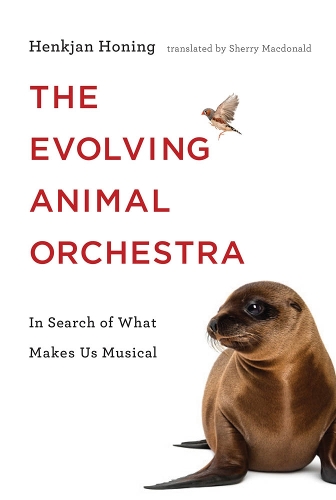
The Evolving Animal Orchestra: In Search of What Makes Us Musical
(Hardback)
Publishing Details
The Evolving Animal Orchestra: In Search of What Makes Us Musical
By (Author) Henkjan Honing
Translated by Sherry MacDonald
MIT Press Ltd
MIT Press
5th March 2019
United States
Classifications
General
Non Fiction
Psychology: states of consciousness
Music
781.11
Physical Properties
Hardback
160
Width 152mm, Height 229mm, Spine 17mm
Description
A music researcher's quest to discover other musical species.Even those of us who can't play a musical instrument or lack a sense of rhythm can perceive and enjoy music. Research shows that all humans possess the trait of musicality. We are a musical species-but are we the only musical species Is our musical predisposition unique, like our linguistic ability In The Evolving Animal Orchestra, Henkjan Honing embarks upon a quest to discover if humans share the trait of musicality with other animals.Charles Darwin believed that musicality was a capacity of all animals, human and nonhuman, with a clear biological basis. Taking this as his starting point, Honing-a music cognition researcher-visits a series of biological research centers to observe the ways that animals respond to music. He has studied scientists' accounts of Snowball, the cockatoo who could dance to a musical beat, and of Ronan, the sea lion, who was trained to move her head to a beat. Now Honing will be able to make his own observations.Honing tests a rhesus monkey for beat perception via an EEG; performs a listening experiment with zebra finches; considers why birds sing, and if they intend their songs to be musical; explains why many animals have perfect pitch; and watches marine mammals respond to sounds. He reports on the unforeseen twists and turns, doubts, and oversights that are a part of any scientific research-and which point to as many questions as answers. But, as he shows us, science is closing in on the biological and evolutionary source of our musicality.
Reviews
Any young person reading it will surely want to run away to become a cognitive scientist.
New ScientistThe book is about the evolution of musicality but it's also about evolving and shifting views and hypotheses that scientists often encounter in research. Honing's quest to find what makes us musical is a prime example of how the scientific process and progress occurs.
Massive ScienceAuthor Bio
Henkjan Honing is Professor of Music Cognition at the University of Amsterdam and editor of The Origins of Musicality (MIT Press).
